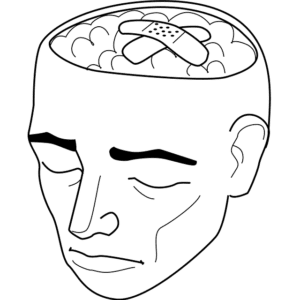
“Mental illness is nothing to be ashamed of,
but stigma and bias shame us all.”
Former President Bill Clinton
https://thehill.com/policy/healthcare/3975996-why-more-americans-are-going-to-therapy/
As the article in the link above states, the stigma of mental illness has decreased, and the proliferation of online (virtual) therapy has made mental health treatment much easier to get. I love it that so many celebrities are helping to break the stigma by sharing their powerful stories of mental health challenges: Bruce Springsteen, Jim Carrey, Lizzo, Demi Lovato, Kevin Love, Chrissy Teigen, Michael Phelps, Wayne Brady, Justin Bieber, Lady Gaga, Beyonce, the late great Robin Williams, and scores more. Check out Selena Gomez’s 2022 documentary MY MIND AND ME for a really powerful story of hope and courage.
While some mental conditions are quite severe and require a psychiatric evaluation and medication in conjunction with talk therapy, anxiety and depression are more manageable… many times predominantly by the self. Although these conditions have both increased exponentially over the past few years, anxiety and depression quite often are situational vs genetic. I always say anxiety is borrowing pain from the future (“What if….”) and depression is borrowing pain from the past (“I shoulda, woulda, coulda…”). Breaking the cycle of these undesirable (and usually untrue) thoughts does take time, but anyone who is willing to take the time to create a new mindset through thought management can do so.
You are more than your thoughts.
While the negative thoughts certainly seem bigger than us many times, they are there for a reason; generally, to protect us from rejection or failure. If left unchallenged, they end up causing more of both. Negative, ruminating thoughts have an important message: something needs to be resolved. Much like a flashing signal on your car’s dashboard, negative thoughts are alerting us to repair something. There is some goal that you’ve not attained yet, or something is missing or just not working, or you simply want more in your life. Your pain can be turned into your power.
Having overcome multiple traumas in my life, and having suffered dysthymia (low-grade depression), I know the importance of thought management to maintain a healthier outlook and change one’s mindset. In addition to talk therapy, one book in particular absolutely changed my life: BORN TO WIN by Dr. Muriel James and Dorothy Jongeward. A classic written in the 70’s, it holds up. I also recommend THE HAPPINESS TRAP by Russ Harris, and THE POWER OF YOUR SUBCONSCIOUS MIND by Dr. Joseph Murphy. And of course anything by Dr. Albert Ellis (OVERCOMING RESISTANCE is a favorite). And Dr. Bruce Lipton’s THE BIOLOGY OF BELIEF. (I could keep going on and on…I’m a big advocate for bibliotherapy.)
While things seem to be improving post-COVID, anxiety, depression, and addictions are still rampant and many clinicians’ patient loads are overflowing. If your provider’s resources are booked, check out psychologytoday.com to find vetted therapists in your area, and know that many times clients can get bumped up on a waiting list. Be patient, and in the meantime, maintain good overall health practices: self-care, physical exercise, proper nutrition, sufficient sleep, a positive support system, meditation, the arts, nature, and fun (for me, that’s Lakers and Dodgers!). And my personal favorite: a gratitude journal. No matter how bad your day sucks, there is always something to be grateful for. Write it down, and watch the gratitude begin to lift you at least to some degree. We get whatever we focus on, and whatever we focus on expands.
“Slow, deep breathing is important… It’s like an anchor in the midst of an emotional storm: the anchor won’t get rid of the storm, but it will hold you steady until it passes.”
– Russ Harris
Learn more about the range of therapy services I offer, and don’t hesitate to contact me with questions about how I can help you.

